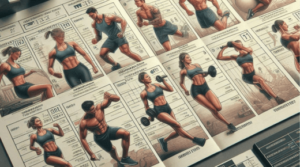Motivation is a driving force that propels individuals to pursue their dreams and aspirations. Whether you’re applying for a job, a scholarship, or admission to a prestigious institution, a well-crafted motivation letter can be the key to opening doors of opportunity. In this article, we will explore what a motivation letter is, its importance, and provide valuable tips for writing an effective one.
A motivation letter, also known as a personal statement or statement of purpose, is a document that allows individuals to express their motivation, goals, and suitability for a specific opportunity. It serves as a means to communicate your passion, qualifications, and reasons for pursuing a particular endeavor.
What is a Motivation Letter?
A motivation letter provides insight into an individual’s character, aspirations, and abilities. It is often required as part of an application process to evaluate a candidate’s suitability and commitment. Unlike a resume or CV, which focuses on factual information, a motivation letter provides a more personal and narrative approach.
Importance of a Motivation Letter
A well-written motivation letter can make a significant impact on the decision-making process. It allows you to showcase your unique qualities and persuade the reader that you are the ideal candidate. Admissions committees, employers, and scholarship boards often receive numerous applications, and a compelling motivation letter can help you stand out from the competition.
Structure of a Motivation Letter
A motivation letter generally follows a structured format, consisting of several sections that highlight different aspects of your qualifications and motivations. While the specific requirements may vary, the following structure provides a solid foundation:
Include your name, contact information, and the date at the top of your letter. This ensures that the recipient can easily identify you and contact you if needed.
Begin your motivation letter with a strong and engaging opening paragraph. Capture the reader’s attention by sharing a personal anecdote, a relevant quote, or an interesting fact. Clearly state the purpose of your letter and introduce yourself.
Educational Background and Skills
In this section, highlight your educational background and relevant skills. Discuss your academic achievements, relevant coursework, and any certifications or qualifications you have obtained. Emphasize how these experiences have prepared you for the opportunity you are pursuing.
Relevant Experience
Describe your relevant work experience, internships, or volunteer activities. Focus on the skills and knowledge you have gained from these experiences and how they align with the requirements of the opportunity. Provide specific examples to illustrate your achievements and contributions.
Motivation and Goals
This section is the heart of your motivation letter. Share your genuine motivation for pursuing the opportunity and how it aligns with your long-term goals. Discuss your passion for the field, the impact you hope to make, and how the opportunity will contribute to your personal and professional growth.
End your motivation letter on a positive note. Summarize your main points and reiterate your enthusiasm and commitment. Express your gratitude for the opportunity to be considered and provide your contact information for further correspondence.
Tips for Writing an Effective Motivation Letter
Writing an effective motivation letter requires careful thought and preparation. Consider the following tips to enhance the impact of your letter:
Research the Institution/Company
Before writing your motivation letter, conduct thorough research on the institution or company you are applying to. Familiarize yourself with their values, mission, and goals. Tailor your letter to align with their specific requirements and demonstrate your genuine interest.
Be Genuine and Personal
A motivation letter should reflect your true self. Be authentic and avoid generic statements. Share personal experiences, anecdotes, or challenges you have overcome to showcase your resilience and character. Personalize your letter to make a lasting impression on the reader.
Highlight Relevant Experiences and Skills
Focus on highlighting experiences and skills that are directly relevant to the opportunity you are applying for. Demonstrate how your past achievements and expertise make you a strong candidate. Provide specific examples and quantify your accomplishments whenever possible.
Showcase Motivation and Passion
Clearly articulate your motivation and passion for the opportunity. Share your unique perspective, ideas, and goals. Convey your dedication and enthusiasm through compelling language and storytelling. Show the reader why you are genuinely interested in the opportunity.
Proofread and Edit
Always proofread your motivation letter before submitting it. Check for grammar, spelling, and punctuation errors. Ensure that your ideas flow logically and that your writing is concise and coherent. Consider seeking feedback from trusted individuals to improve the quality of your letter.
Examples and Templates
When writing a motivation letter, it can be helpful to refer to examples and templates for inspiration. However, it is important to tailor the content to reflect your own experiences and motivations. Use these resources as a guide, but ensure that your letter remains unique and personal.
A well-crafted motivation letter can significantly enhance your chances of success when applying for opportunities. By showcasing your passion, qualifications, and goals, you can make a compelling case for why you are the ideal candidate. Remember to research the institution or company, be genuine and personal, highlight relevant experiences and skills, showcase motivation and passion, and always proofread your letter before submitting.
Now, take the first step towards your dreams and start crafting your own impactful motivation letter.
You May Also Like:
- La 5 Letter Words
- L Letter Words
- L Letter Names for Girl Hindu
- Letter Mail Format
- Motivation Letter for Job
- Motivation Letter Sample







